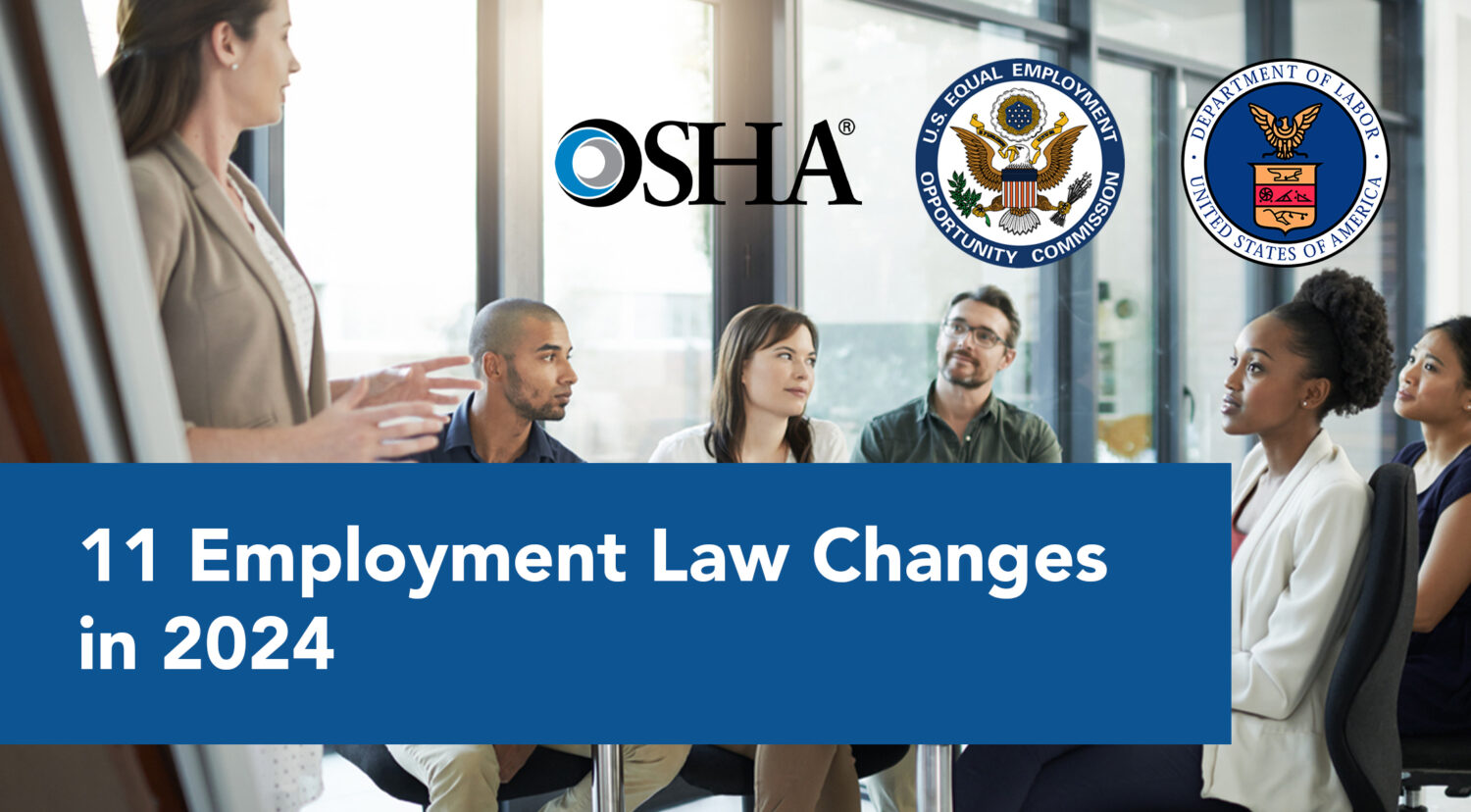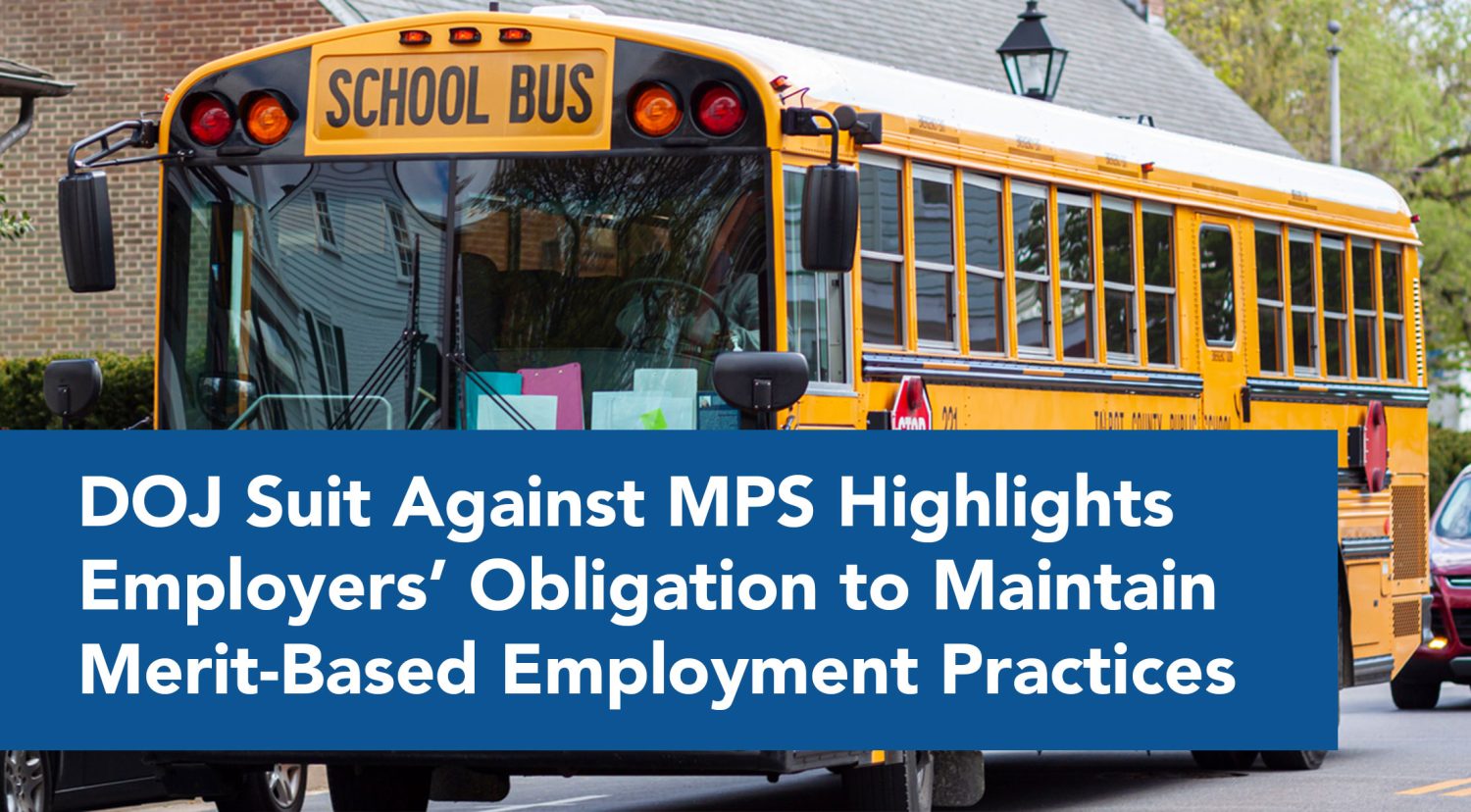

The holidays are over, year-end bonuses are paid, and everyone is back to work. Now, it’s time to focus on 2024 and the new laws and rules that may impact you. Many new federal, state, and local labor and employment laws, regulations and administrative guidance were enacted or proposed in 2023, which will become effective in 2024. Here are the highlights:
1. Paid Leave Laws
The following jurisdictions have enacted paid leave laws that will take effect in 2024: California; Minnesota; Bloomington, MN; Illinois; and Chicago, IL. Illinois’ new law permits employees to use accrued paid leave for any purpose. Chicago’s new leave law requires that certain Chicago employers pay out for any unused paid leave. California increased the amount of paid leave employees can take each year and increased how much paid leave employees can accrue and carry over from year to year.
2. Payout Requirements for Vacation Pay
Effective January 1, 2024, Colorado has joined the list of states that consider earned vacation time to be wages and, therefore, require employers to pay out any accrued but unused vacation time.
3. Cannabis Use
Effective January 1, 2024, Washington state and California prohibit certain employers from discriminating against employees and applicants based on an individual’s off-the-job use of cannabis.
4. Wage Increases
Twenty-five states have raised their minimum wage for 2024, as have many cities and counties. Employers should check their jurisdictions for mandated increases and effective dates to ensure compliance.
5. Proposal to Update the Exempt Minimum Salary Threshold
In 2023, the U.S. Department of Labor (DOL) announced a Notice of Proposed Rulemaking (NPRM) recommending: 1) Raising the minimum salary threshold for exempt executive, administrative, and professional employees from $684 to $1,059 weekly; 2) Increasing the Highly Compensated Employee compensation threshold from $107,432 to $143,988; and 3) Automatically updating earning thresholds every three years. For more information: https://www.federalregister.gov/documents/2023/09/08/2023-19032/defining-and-delimiting-the-exemptions-for-executive-administrative-professional-outside-sales-and
6. EEOC’s Proposed Enforcement Guidance on Harassment
On October 2023, the Equal Employment Opportunity Commission (EEOC) published a notice of Proposed Enforcement Guidance on Harassment in the Workplace. This would be the first update since 1999. The updated proposed guidance explains the legal standards for harassment and employer liability applicable to claims of harassment. After reviewing the public comments, the EEOC will decide whether to finalize the enforcement guidance. While not a law itself, the enforcement guidance could be cited in court. For more information: https://www.eeoc.gov/proposed-enforcement-guidance-harassment-workplace
7. Proposed Independent Contractor Rule Updates
The long-awaited new independent contractor rule under the Fair Labor Standards Act (FLSA) may soon be on the horizon. The DOL proposed a new rule in 2022 to determine who is an employee or independent contractor under the FLSA. The new rule will replace the 2021 rule with a multifactor approach. The DOL intends this new rule to reduce the misclassification of employees as independent contractors and provide greater clarity to employers who engage (or wish to engage) with individuals who are in business for themselves. The final rule is likely to be announced in 2024. For more information: https://www.federalregister.gov/documents/2022/10/13/2022-21454/employee-or-independent-contractor-classification-under-the-fair-labor-standards-act
8. NLRB’s Joint-Employer Standard
The Nation Labor Relations Board (NLRB) has redefined “joint employer” under the National Labor Relations Act (NLRA). The NLRB replaced the 2020 standard for determining joint-employer status with a new rule that will likely lead to more joint-employer findings.
Under the new standard, two or more employers may be held to be joint employers if each entity: (1) has an employment relationship with the employees and (2) has the authority to control one or more of the employees’ essential terms and conditions of employment. The new rule further clarifies that joint-employer status can be based on indirect or unexercised control. This is a major departure from the 2020 rule, which required that joint employers have “substantial direct and immediate control” over essential terms and conditions of employment. The new standard will take effect on February 26, 2024, and will not apply to cases filed before the effective date. For more information: https://www.federalregister.gov/documents/2023/10/27/2023-23573/standard-for-determining-joint-employer-status
9. OSHA Expands Injury and Illness Reporting Requirements
The Occupational Safety and Health Administration (OSHA) issued a new rule, effective January 1, 2024, which requires certain employers to submit injury and illness information to OSHA electronically.
10. OSHA’s Proposed Rule to Amend Representatives of Employers and Employees Regulation
In August 2023, OSHA published an NPRM titled “Worker Walkaround Representative Designation Process,” which proposes to allow employees to authorize an employee or third party as their representative to accompany an OSHA Compliance Safety and Health Officer (CSHO) during a workplace inspection. This change aims to increase employee participation during walkaround inspections. A final rule will likely be published in 2024. For more information: https://www.federalregister.gov/documents/2023/08/30/2023-18695/worker-walkaround-representative-designation-process
11. FTC Proposal to Ban Non-competes
In January 2023, the Federal Trade Commission (FTC) proposed a rule banning most non-competes. The FTC will vote on the rule in April 2024. The NLRB also announced its position that most non-competes and non-solicitations violate the NLRA.
Many States also disfavor non-competes. In Minnesota, as of July 1, 2023, non-competition provisions are no longer enforceable against Minnesota employees or independent contractors in most situations. Additionally, while non-competes have generally been unenforceable for some time in California, effective January 1, 2024, employees will have a private cause of action against employers whose agreements include non-compete covenants. On December 22, 2023, the New York governor vetoed the bill that would ban all new non-competition agreements for workers in New York. The governor sought to limit the ban to individuals earning more than $250,000. Employers should expect a revised bill to be introduced next year.
The above is not intended to be an exhaustive list of new employment laws or the jurisdictions that have enacted laws in the referenced topics. Please consult local counsel for more information.
HR Unlimited, Inc. specializes in helping federal contractors and employers effectively meet their AAP and EEO compliance obligations. Please contact us to discuss any of your questions, concerns, or needs in this area.




